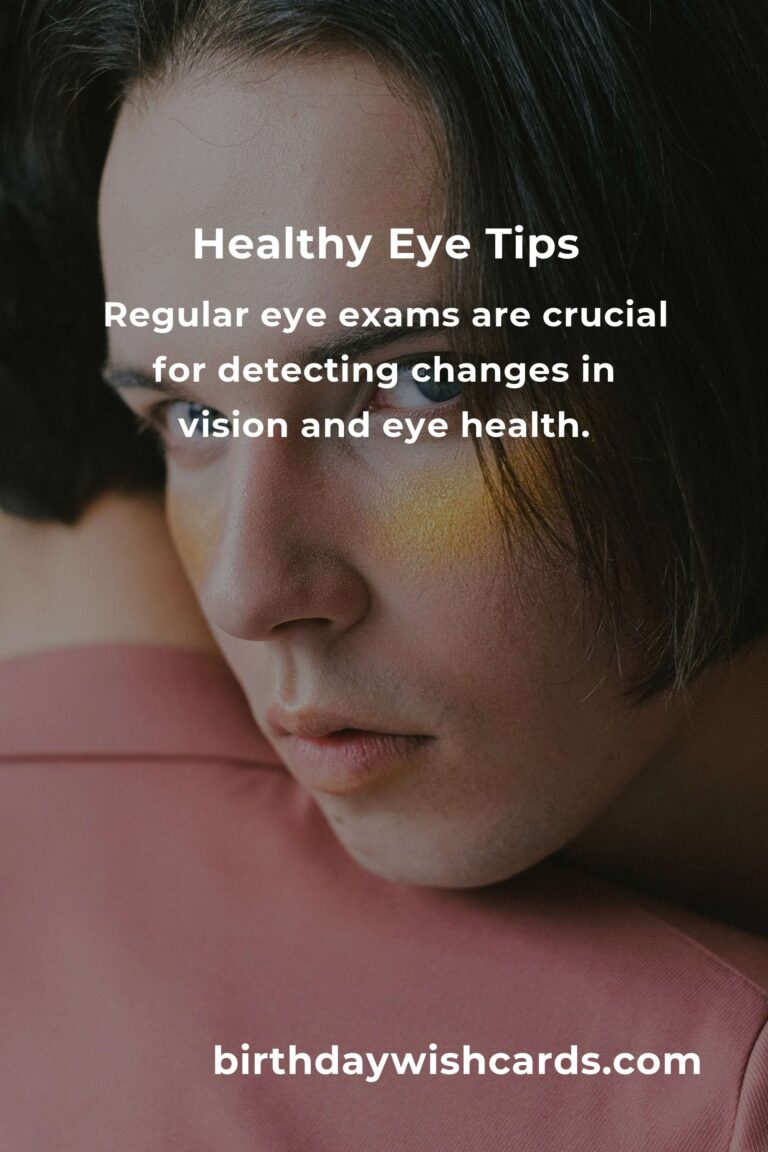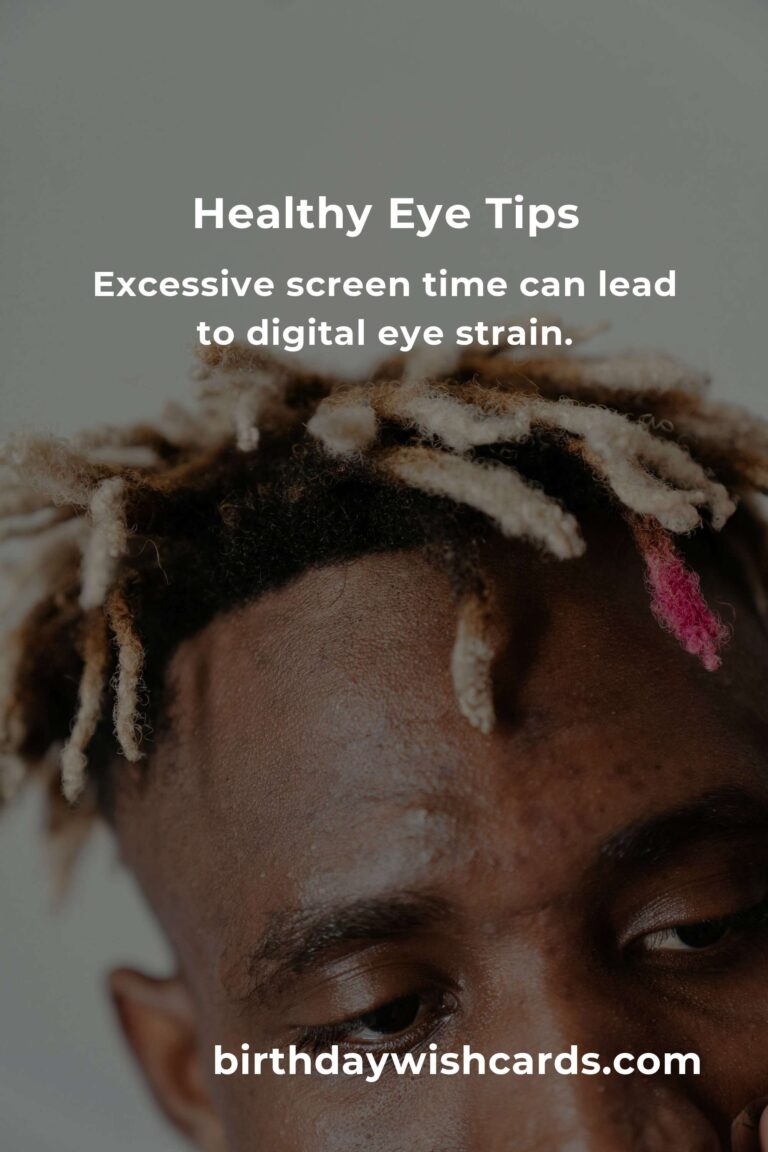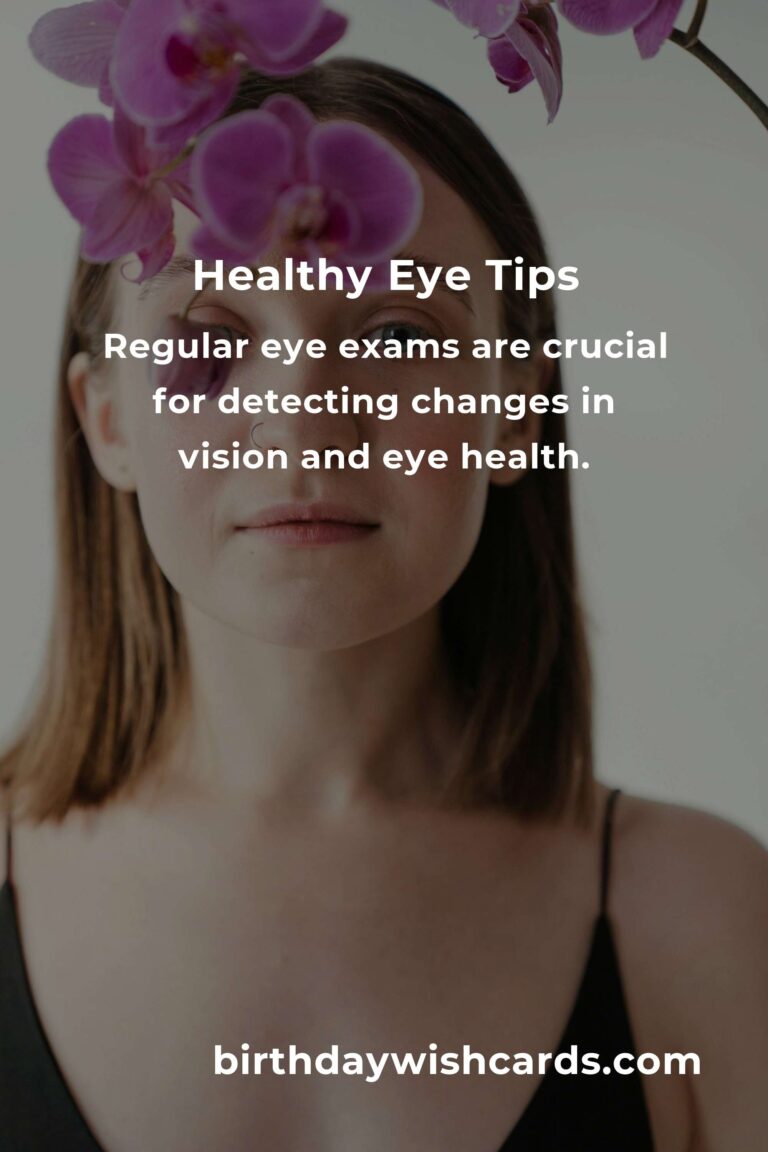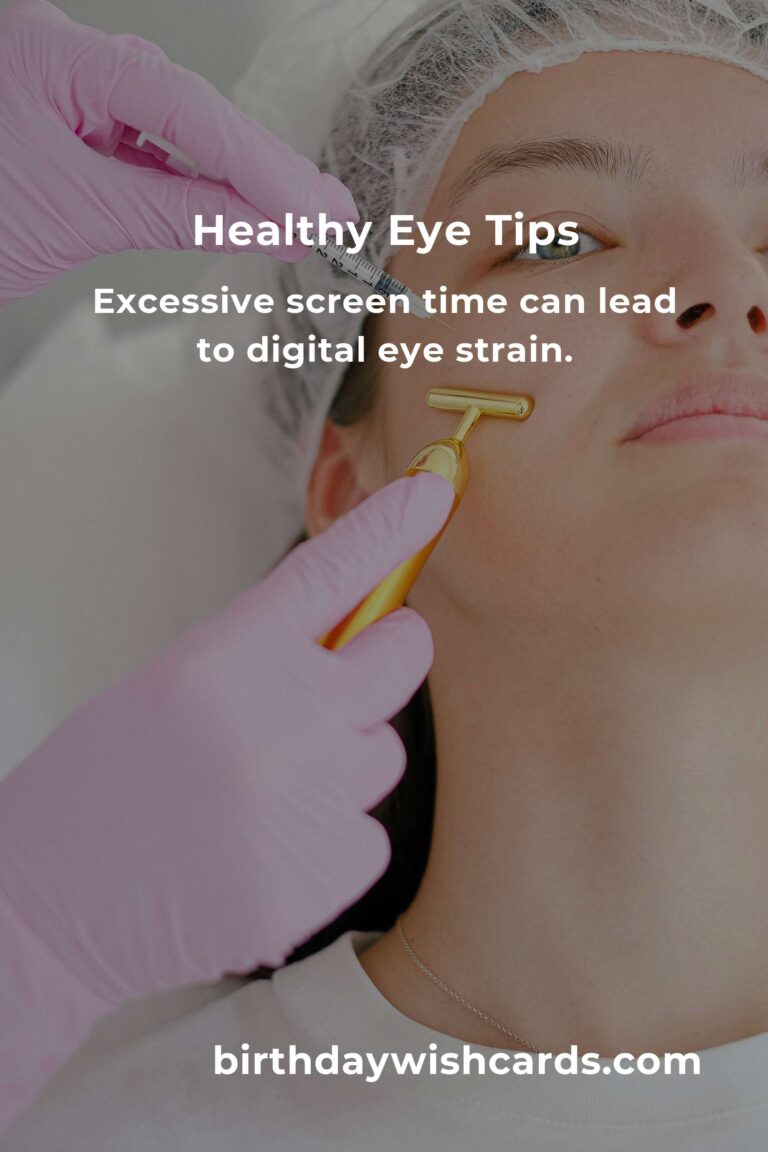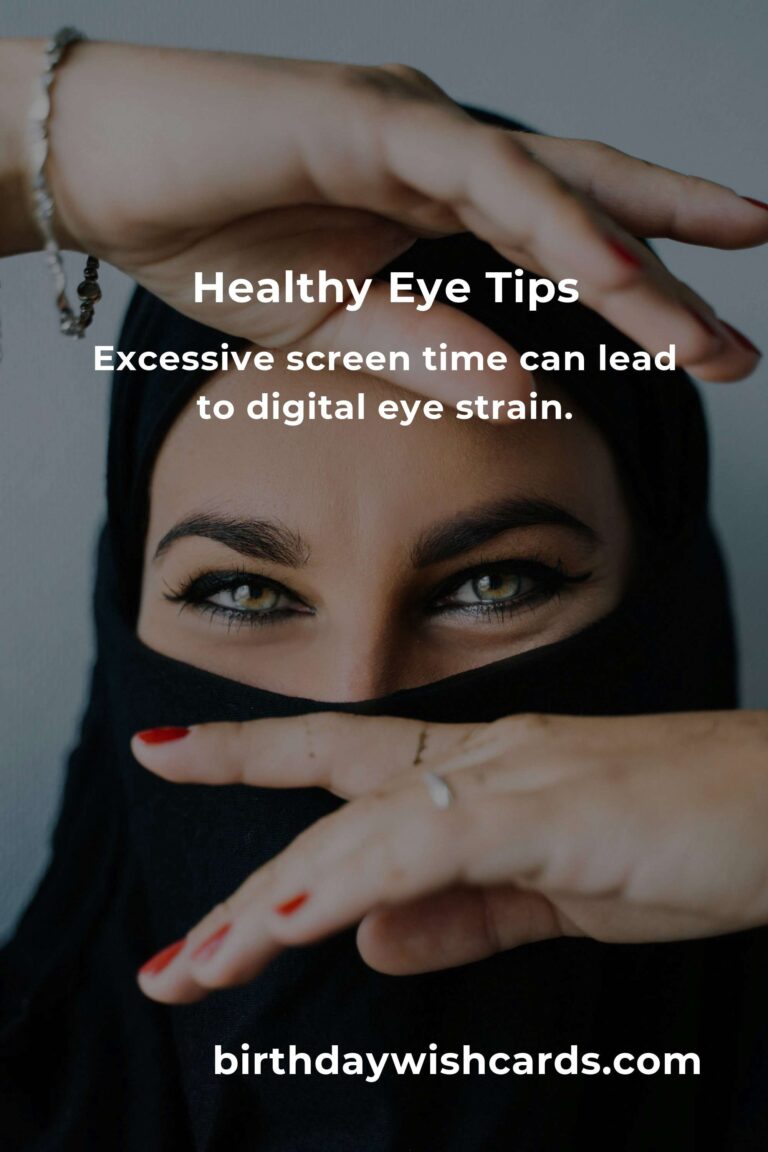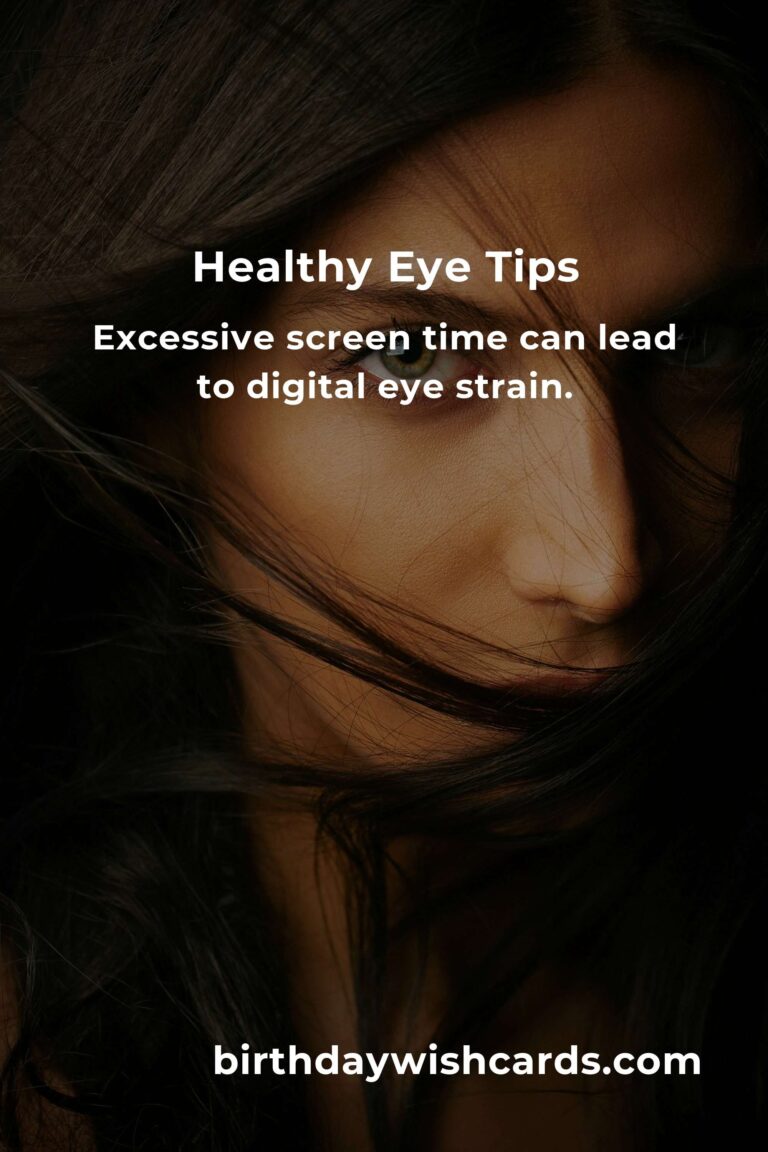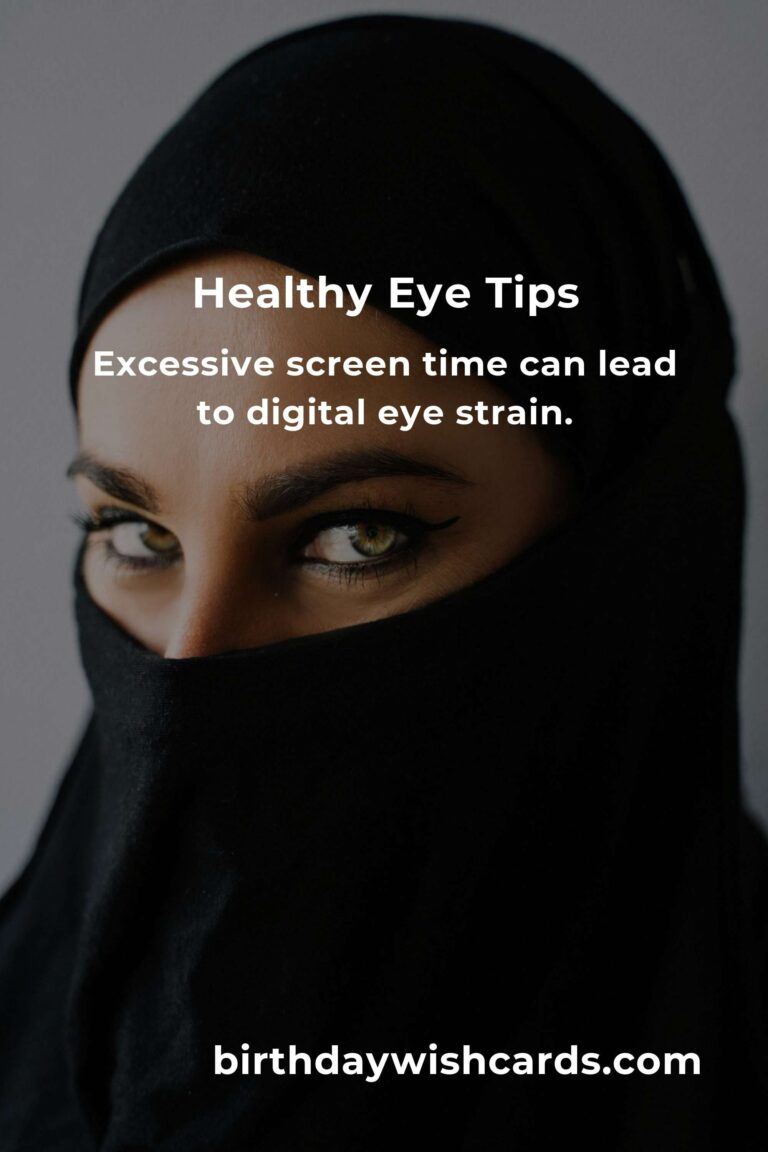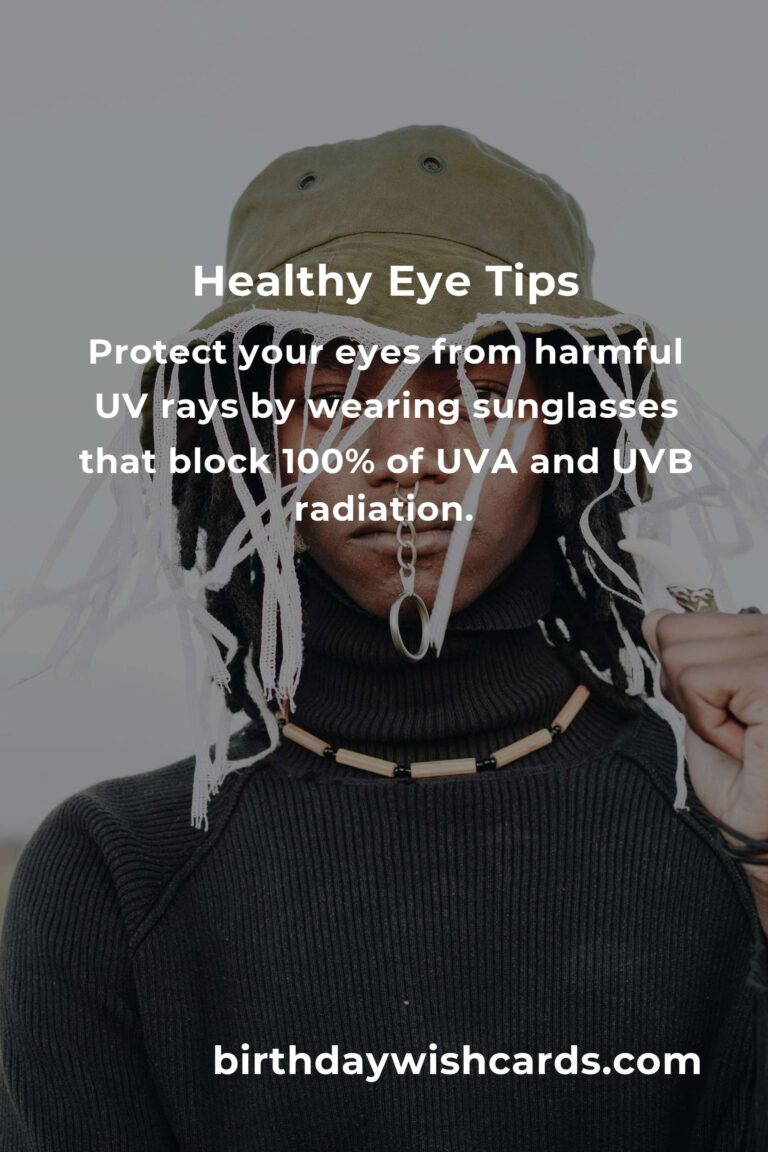
As you enter your 40s, taking care of your eye health becomes increasingly important. Many people experience changes in their vision during this decade, often requiring adjustments to their eye care routine. In this article, we will explore 20 essential tips to maintain and improve your eye health as you age.
1. Schedule Regular Eye Exams
Regular eye exams are crucial for detecting changes in vision and eye health. An ophthalmologist can identify early signs of conditions like glaucoma or macular degeneration.
2. Wear Sunglasses
Protect your eyes from harmful UV rays by wearing sunglasses that block 100% of UVA and UVB radiation. This can prevent cataracts and other sun-related eye damage.
3. Maintain a Healthy Diet
Incorporate foods rich in omega-3 fatty acids, lutein, and vitamins C and E, which can help ward off age-related vision problems. Leafy greens, fish, and citrus fruits are excellent choices.
4. Stay Hydrated
Drinking plenty of water helps keep your eyes lubricated and comfortable. Proper hydration can reduce the risk of dry eyes.
5. Use Protective Eyewear
When engaging in activities that pose a risk to your eyes, such as sports or home improvement projects, always wear appropriate protective eyewear.
6. Practice the 20-20-20 Rule
If you spend long hours in front of a screen, take regular breaks using the 20-20-20 rule: every 20 minutes, look at something 20 feet away for 20 seconds.
7. Quit Smoking
Smoking increases the risk of developing age-related eye diseases. Quitting smoking can improve your overall eye health.
8. Control Blood Sugar Levels
If you have diabetes, maintaining stable blood sugar levels can prevent diabetic retinopathy and other eye complications.
9. Get Enough Sleep
Adequate sleep is essential for eye health. It helps to reduce eye strain and allows your eyes to recover and rejuvenate.
10. Manage Screen Time
Excessive screen time can lead to digital eye strain. Limit your exposure and ensure your screen is positioned at a comfortable distance and height.
11. Blink Regularly
Blinking keeps your eyes moist and can alleviate discomfort from dry eyes, especially when using digital devices.
12. Use Artificial Tears
If you suffer from dry eyes, consider using over-the-counter artificial tears to keep your eyes lubricated.
13. Monitor Your Vision
Be aware of any changes in your vision, such as blurriness or difficulty focusing. Report these changes to your eye doctor immediately.
14. Exercise Regularly
Regular physical activity improves circulation, which can benefit your eye health by ensuring adequate blood flow to the eyes.
15. Reduce Alcohol Consumption
Excessive alcohol intake can lead to dry eyes and other eye-related issues. Moderation is key to maintaining eye health.
16. Adjust Lighting
Ensure adequate lighting when reading or working to prevent eye strain. Avoid glare by positioning lights correctly.
17. Use the Right Prescription
If you wear glasses or contact lenses, ensure your prescription is up-to-date to prevent unnecessary eye strain.
18. Manage Allergies
Allergies can cause itchy, watery eyes. Use antihistamines or eye drops to alleviate symptoms.
19. Limit Caffeine Intake
Too much caffeine can lead to dehydration, which may affect your eye health. Keep your caffeine consumption in check.
20. Stay Informed
Keep up-to-date with the latest research and recommendations for eye health to ensure you’re doing all you can to protect your vision as you age.
Regular eye exams are crucial for detecting changes in vision and eye health.
Protect your eyes from harmful UV rays by wearing sunglasses that block 100% of UVA and UVB radiation.
Incorporate foods rich in omega-3 fatty acids, lutein, and vitamins C and E to help ward off age-related vision problems.
Excessive screen time can lead to digital eye strain.
Adequate sleep is essential for eye health.
#EyeHealth #VisionCare #HealthyAging #EyeCare #HealthyVision


